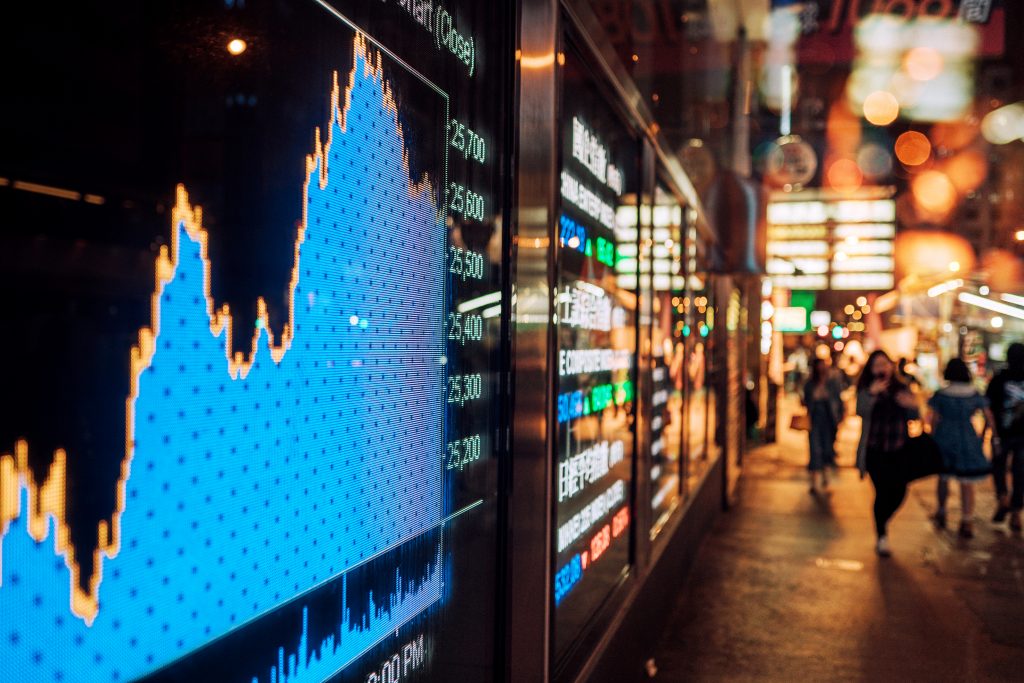Thought Leadership | 13 March 2020
This is a difficult note to write. Investors, stakeholders
and human beings in general will always crave comfort in a world that is
becoming increasingly uncomfortable. Whether it’s good news or bad news, the
certainty of something is better than the uncertainty of, well, everything.
Unfortunately, right out of the gate we should say that we don’t yet have enough
evidence to say for sure whether the 11-year economic and financial expansion
cycle has come to an end, or a v-shaped or a u-shaped market rebound is on the
way. We do recognise that we have entered the area of “systemic risk”, which is
risk that cannot be hedged and applies to everyone.
The major piece of news which prompted this note, were some
attempts for a monetary and fiscal response to the crisis.
-The Fed lowered interest rates by 0.5%, and did so again on Sunday 15th March (another 1%), while injecting over $1.5tn of short term liquidity into the system.
-The Bank of England lowered interest rates by 0.5% as
well, and the ECB (already featuring negative rates) pledged targeted measures.
-The UK pledged £30 Billion to combat the virus and the IMF
added $50billion for countries that might need it.
-China has already been lowering interest rates and
aggressively stimulating the economy since January.
Nevertheless, global stocks punctured right through critical technical levels on Wednesday 11th and Thursday 12th, entering official bear market territory, and continued to drop, having lost a quarter of their value in the space of three weeks. Thursday 12th March was the worst day in S&P 500 history after Black Monday in 1987. On Monday March 16th, marketst did not respond to fresh Fed stimulus.
Valuations are now below average while real rates are negative across the board, meaning that people buy bonds hoping for a return of most of their money, rather than return on their money. Having said that, bond trading has been erratic and we are seeing signs of stress especially in the more volatile high yield market.
That the Coronavirus poses a major risk to the global
economy and financial markets is an understatement. A case that “this may well
be business as usual” was tested for a few months, but markets remained
unconvinced. A rare and simultaneous demand and supply shock have significantly
hurt the global supply chain and sales revenue. The mantra that “central banks
can fix everything” worked when economic growth was just slow, or slowing. But it comes into question now that the economy is about to
take an even worse turn. The IMF has predicted that aggregate output
growth will be slower across the world, even more so in countries with
struggling healthcare systems. Given that Emerging Markets, which generate
growth, have less developed healthcare systems, we wouldn’t be too surprised if
global growth slowed by half, at least in the first two quarters of 2020. This
could mean a recession for Europe and the UK and maybe for the US. When we are
threatened with a global recession, it seems that markets don’t draw much
comfort in rate cuts and cheap money.
So
what are the markets waiting for?
Serious problems require serious solutions and all hands on
deck. Earlier in the week, we predicted that global governments and central
banks would “throw the kitchen sink” at the problem. To be certain, we think
that monetary policy has almost exhausted its arsenal, but the same cannot be
said of fiscal policy. With the exception of the UK, developed markets,
including the United States, have not come up with credible plans to fight the
simultaneous threat of the virus and the ensuing economic recession. And what
few plans we have seen have failed to convince.
So the first challenge is to come up with a plan
that can convince markets it can tackle the virus successfully.
The next challenge is addressing negative
sentiment. To quote IMF’s head Kristalina Georgieva, “experience suggests that about
one-third of the economic losses from the disease will be direct costs: from
loss of life, workplace closures, and quarantines. The remaining two-thirds
will be indirect, reflecting a retrenchment in consumer confidence and business
behaviour and a tightening in financial markets”.
It falls on global leaders to
come up with a response that would somehow mitigate some of the damage from
negative sentiment relating to but not directly linked to the virus. By way of
example, traders sold off the stock of Netflix on Thursday, slightly more than
the market average. However, in the event that people stay in their houses for
a prolonged period, it stands to reason that the company might be one of the
few to benefit. The same is true for the sell-off in the healthcare sector.
What will it take for markets to rebound?
UK-like fiscal spending, with even more targeted
and efficient solutions, needs to be replicated by a host of other developed
nations, for markets to regain some faith. Still, we don’t believe it would
necessarily solve the problem by itself.
For consumption to resume, people need to come out of their
houses, protected as much as they can. The world felt something like this in
2008-9 when we saw lines outside Northern Rock. Spending decisions, even about
the smallest items, were deferred. In the end, it wasn’t just QE, but rather
the combined efforts of world leaders and central banks that brought calm to
the markets and consumers.
What could prompt a rebound? A similar headline:
“World
Leaders Meet Urgently to Discuss Coordinated Response to Virus”.
Why hasn’t this happened yet?
In the past few years slow economic growth and demand for
“change” has led to a weakening of global forums and institutions, while ethnic
nationalism went mainstream. Now that we are in need of coordination, our
leaders seem too exhausted from trade wars and disputes to sit down and ask one
another: “what is it we can do together?” A world that is fractious and lacking
coordinated leadership and action, will be significantly more hard-pressed to
contend with the economic, financial and human fallout of Covid-19. Markets
recognise that. Individual efforts may have a critically less impact that one
massive message that “we are here and spending every resource we have to find a
solution”.
It is really a no-brainer. It times of uncertainty,
leadership is crucial. If there is a strong coordinated message from global
leaders, we believe that we could see some restoration of faith in global
markets and consumers. This should take care of 2/3 of the underlying economic
problem.
Then we would begin to focus on the 1/3 of the damage, the
actual virus. We would wait to see evidence of a slowdown, same as we did in
China, and news that we are closer to a vaccine. The weather could also be
another mitigating factor, according to some experts. This will unfortunately
take time. A vaccine used for such a wide population is sure to take time to
test. That China has seen a recession of the virus is good news, it means that
recessions are possible, but at extreme human and economic costs that the west
might not be able to withstand.
Conclusion:
At razor’s edge
What markets want is more money, more leadership
and some good news. Until such time as we see some of these, our feeling is
that market volatility will persist. The good news is that banks are well
capitalised, so unless Main Street fears become extreme, we don’t expect to see
bank runs. Capital, the necessary ingredient for a recovery, at this point continues
to flow unencumbered.
On the other hand, we cannot overlook the dangers
of this truly unprecedented situation, at least post-WWII. The coronavirus is
primarily a fundamental problem, attacking an already weak global economy. If
markets, that is both Wall Street and Main Street, see a continuation of these
stresses at such breadth for the next 5-6 weeks, then the likelihood of a
global recession and long-term economic fallout will climb significantly.
Which side of the equation we will end at, is
difficult to say at this point. Even if all positive catalysts play out exactly
as they should, it will still take a huge and coordinated effort to see a
return to normality in the next few months.
Our investment committee met on Friday and decided that we would wait for more visibility and less volatility before making any significant changes to the portfolios












































Comments